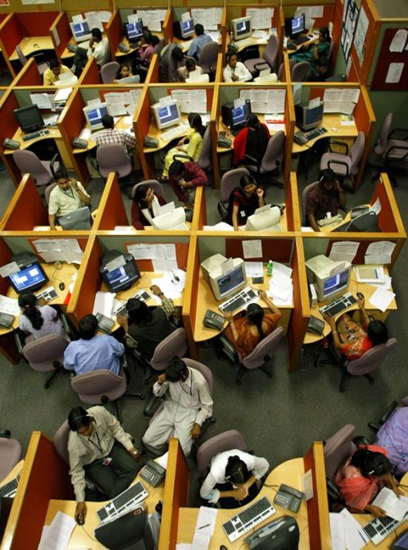Working at an Indian Call Center
July 10, 2011 in Daily Bulletin

Andrew Marantz at MotherJones spent his summer at an Indian Call Center and wrote about what he learnt. Some of the more interesting points include:
- Businesses in India don’t trust the public infrastructure and so they hire private cars to taxi their employees back and forth.
- Call center workers will earn 20,000 rupees per month. This translates to about $2 per hour and $5,000 per year in a country where the per capita income is about $900 per year.
- Call center workers undergo ‘culture training’ where they have to memorize things such as state capitals and must watch episodes of Seinfeld.
- One call center divides customers into seven categories: Eccentric, Arrogant, Bumpkin, Quarrelsome, Prudent, Assertive and Sweet-spoken.
- Workers at a call center can only succeed if they “de-Indianize” and lose or remake part of their identity. This might have adverse psychological effects.
Click here to read more and find out about the sociology of Australian, British and American people as taught by an Indian culture trainer. You can also read about the Indian Marxist telephone operator and the standard sleeping arrangements for workers.
Source: MotherJones

















Join the Discussion! (No Signup Required)